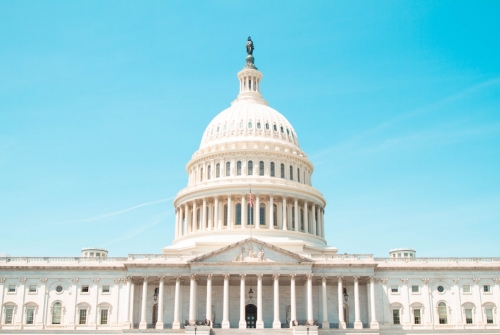Give Me a Nanny or Give Me Death?
“We should not expect the state to appear in the guise of an extravagant good fairy at christening, a loquacious companion at every stage of life’s journey and the unknown mourner at every funeral.” —Prime Minister Margaret Thatcher
“Government exists to protect us from each other. Where government has gone beyond its limits is in deciding to protect us from ourselves.” —President Ronald Reagan
One of the dying gasps of the Biden Administration in the financial services sector was to push an Overdraft Rule through the Consumer Financial Protection Bureau (CFPB) that would handcuff banks and essentially force them to lend money without their consent.
To the last administration, there was no naturally occurring phenomenon in civic life that government could not turn into a problem that required its nannying services. To mix metaphors a bit, nanny government pulls a pin on a grenade, hands it to you, and then expects to be praised when it rushes in to save you from the explosion.
The issue, in this case, is overdraft fees. In the waning days of 2024, the Elizabeth Warrens of the world and her friends at the CFPB were scrambling to classify overdraft fees (the penalties a customer agrees to for spending money the customer doesn’t have) as credit products. This not only gave CFPB the ability to regulate overdraft fees but goaded banks into granting what are essentially automatic loans.
For the last two Democratic administrations, a fee charged by a bank was ipso facto unfair, even “predatory.” Irresponsible banking customers (in this case, those with ten or more overdrafts a year) were not candidates for gentle correction but for nannying by Uncle Sam.
Fortunately, the Biden era CFPB overdraft rule can be overturned by a majority vote of Congress.
That’s why South Carolina’s own Senator Tim Scott, the Chairman of the Senate Banking Committee, has introduced just such a “Congressional Review Act” resolution. In introducing the measure, Senator Scott said: “As I’ve said repeatedly, lawful and contractually agreed upon payment incentives promote financial discipline and responsibility [emphasis ours] and protect access to important financial services.”
Based on his life experience as a businessman, Scott rightfully sees government dictates in the financial sector as harmful to a bank or credit union’s ability to provide free or low-cost accounts, but also as undermining the traits of personal responsibility that led Scott from a poor kid in North Charleston to a successful businessman to Congress.
BREAKING NEWS: Senator Scott’s bill has passed the U.S. Senate and is headed to the House.
Make no mistake, setting overdraft fees in Washington is a price control scheme and an interference in the free market, and the effect will be to atrophy community banks and to drive customers toward higher rate-higher risk lenders like payday and title loan lenders.
So, what is the solution to overdraft fees? Competition!
New fintech (financial technology) firms and apps are making banking more competitive than ever, which has led to more choices than ever and a reduction in overdraft fee revenue.
The answer to fees you don’t like is to find a bank or credit union more suited to your personal financial situation.
A little shopping is better than relying on a nanny to save you from yourself.






